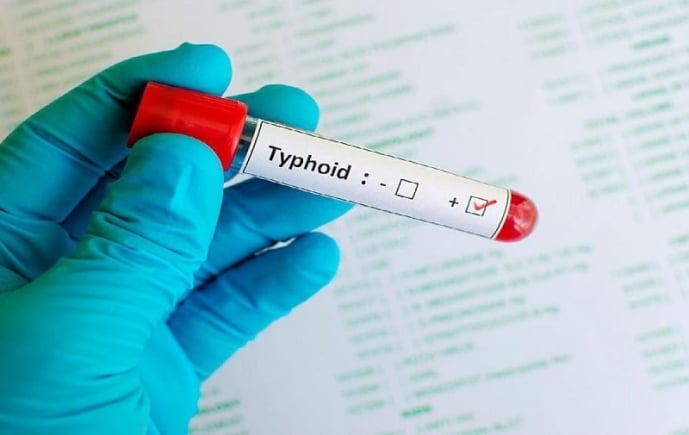Outbreak of Typhoid Fever in Oti Region, Ghana: A Comprehensive Overview
The Ghana Health Service (GHS) has declared an outbreak of typhoid fever in the Oti Region, specifically affecting the districts of Biakoye, Krachi East, Krachi West, and Krachi Nchumuru. This declaration, made on August 28, 2025, signals a significant public health concern requiring immediate and coordinated action. Typhoid fever, a bacterial infection caused by Salmonella Typhi, poses a serious health risk, particularly in areas with compromised sanitation and hygiene practices. The GHS, in collaboration with the Oti Regional Coordinating Council and the Ministry of Health, has initiated swift measures to contain the outbreak and prevent further spread. A National Case Management Rapid Response Team has been deployed to the affected districts to bolster local healthcare capacity and provide specialized expertise in managing the situation.
Typhoid fever transmission primarily occurs through the consumption of contaminated food or water. The bacterium thrives in unsanitary environments and can easily spread where hygiene practices are inadequate. Symptoms typically manifest as fever, chills, headache, sore throat, generalized weakness, and abdominal pain. In some cases, diarrhea may also occur. Early diagnosis and treatment are crucial to prevent complications, which can include intestinal perforation and hemorrhage. The GHS has emphasized the importance of strict adherence to hygiene practices as a primary preventative measure against further infections. This includes boiling drinking water to eliminate any potential pathogens, frequent handwashing with soap, thorough cooking of food to ensure it reaches safe internal temperatures, and eliminating open defecation practices, particularly near water sources.
The GHS has implemented a multi-pronged approach to controlling the outbreak. The deployment of the National Case Management Rapid Response Team represents a critical step in providing immediate support to the affected districts. This team will work closely with local health officials to strengthen case management protocols, ensure accurate diagnosis and timely treatment, and implement effective surveillance measures to track the spread of the disease. Furthermore, the GHS is collaborating with community leaders and local organizations to promote awareness about typhoid fever and its prevention. This includes disseminating information about hygiene practices, safe food handling, and the importance of seeking medical care if symptoms appear.
Community engagement is integral to the containment efforts. The GHS has encouraged communities to organize clean-up campaigns to mitigate environmental risks that contribute to the spread of typhoid. These campaigns focus on improving sanitation, eliminating stagnant water sources, and promoting proper waste disposal practices. By actively involving communities in these efforts, the GHS aims to foster a sense of ownership and responsibility for public health, thereby ensuring the long-term sustainability of preventative measures. The combined efforts of the GHS, local authorities, and community members are essential to effectively control the outbreak and protect the health of the population.
The GHS is committed to providing continuous updates and guidance to the public throughout the outbreak. Regular communication channels will be used to disseminate information about the current situation, preventative measures, and available resources. The GHS has emphasized the importance of remaining calm and adhering to the advice of health professionals on the ground. This includes seeking prompt medical attention if typhoid symptoms are experienced, cooperating with health officials during investigations, and following prescribed treatment regimens. By working together, the GHS and the community can effectively address this public health challenge and ensure the well-being of the affected population.
The GHS is currently conducting comprehensive assessments in the affected areas to gain a deeper understanding of the scope of the outbreak. This includes epidemiological investigations to trace the source of the infection, identify risk factors, and determine the extent of transmission within the community. The findings of these assessments will inform further interventions and strategies to effectively control the outbreak and prevent future occurrences. The GHS remains dedicated to protecting the health of all Ghanaians and will continue to work diligently to address the typhoid outbreak in the Oti Region. The collaborative efforts of the GHS, local authorities, healthcare professionals, and community members will be instrumental in overcoming this public health challenge.


